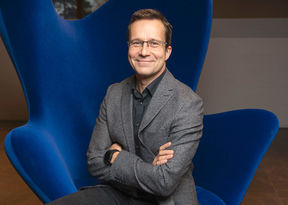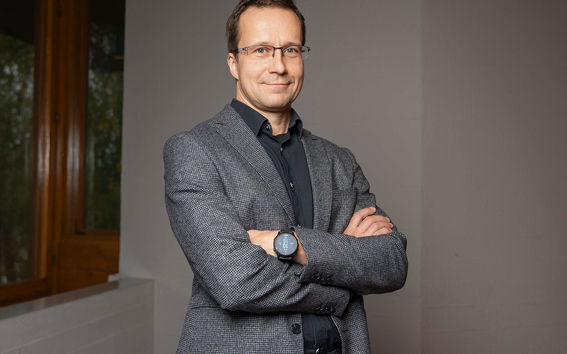Get to know us: Ville Alopaeus

Ville Alopaeus has worked at Aalto University since 2005 and has been a professor since 2008. Alopaeus' research focuses on separation processes in chemical engineering, phase equilibria, and modelling of various processes.
Alopaeus came to these topics as a continuation of his research background: he already studied process modelling and mass transfer in his doctoral thesis and worked for five years at Neste in process development.
Currently, Alopaeus’ work focuses on the green transition towards a renewable and more sustainable energy and materials environment. Alopaeus’ aim is to contribute to the transition in a way that is economically and resource-efficiently feasible.
’Taking oil or coal from the ground is easy and cheap, but it is certainly not ecologically sustainable. When you start doing more sustainable things that are not so easy and not so cheap, on a large industrial scale it starts to be a challenge,’ says Alopaeus.
The most inspiring part of the job are the moments of insight and helping students
Throughout Alopaeus' career, educating the students has been an important part of his work. Alopaeus led the teaching evaluation committee at the School of Chemical Engineering from its inception until he became the head of the Department of Chemical and Metallurgical Engineering.
He has overseen bachelor’s and master’s programme majors in chemical engineering and has supervised around 130 master theses to date.
’I find 'teaching' to be a bit of a narrow term and I prefer to talk about education. Educating students is of course a very important part of my job and you could say that it is the most important part. Research comes on top of that, but research is not necessarily separate from education - for example, supervising doctoralstudents is educating them for their work as researchers,’ says Alopaeus.
Alopaeus educates chemical engineering master's students in the Chemical and Metallurgical Engineering programme. The students get to explore process engineering issues related to the green transition and renewable raw materialsn addition to chemical engineering fundamentals, the courses also cover engineering applications, such as plastics recycling.

Ville AlopaeusWhat one person can do is quite limited, but if I can share my knowledge with the students, I can make a much bigger difference.
’The programme looks at solutions for how to make the green transition feasible. The studies combine discoveries from the laboratory with how to implement change on a really large scale. It's an inspiring topic, but it also has huge relevance. And of course, as a result of this relevance, the job opportunities for graduating students are excellent,’ Alopaeus says.
The best thing about working as a professor, according to Alopaeus, are the moments of insight and the broader impact through education. There are so many graduating students that the positive impact of education is potentially huge:
’In general, this job has the potential to create all sorts of new insights - if you discover a way to do something new, it's very rewarding. Of course, it's also rewarding to feel that you've been able to help students understand something important. What one person can do is quite limited, but if I can share my knowledge, I can make a much bigger difference’, Alopaeus says.

Read more news

Join the Unite! Virtual Education Summit- Registration now open
Join us in shaping international collaboration! This online event takes place 12 March, 2026.
Apply Now: Unite! Visiting Professorships at TU Graz
TU Graz, Austria, invites experienced postdoctoral researchers to apply for two fully funded visiting professorships. The deadline for expressions of interest is 20 February 2026, and the positions will begin on 1 October 2026.






